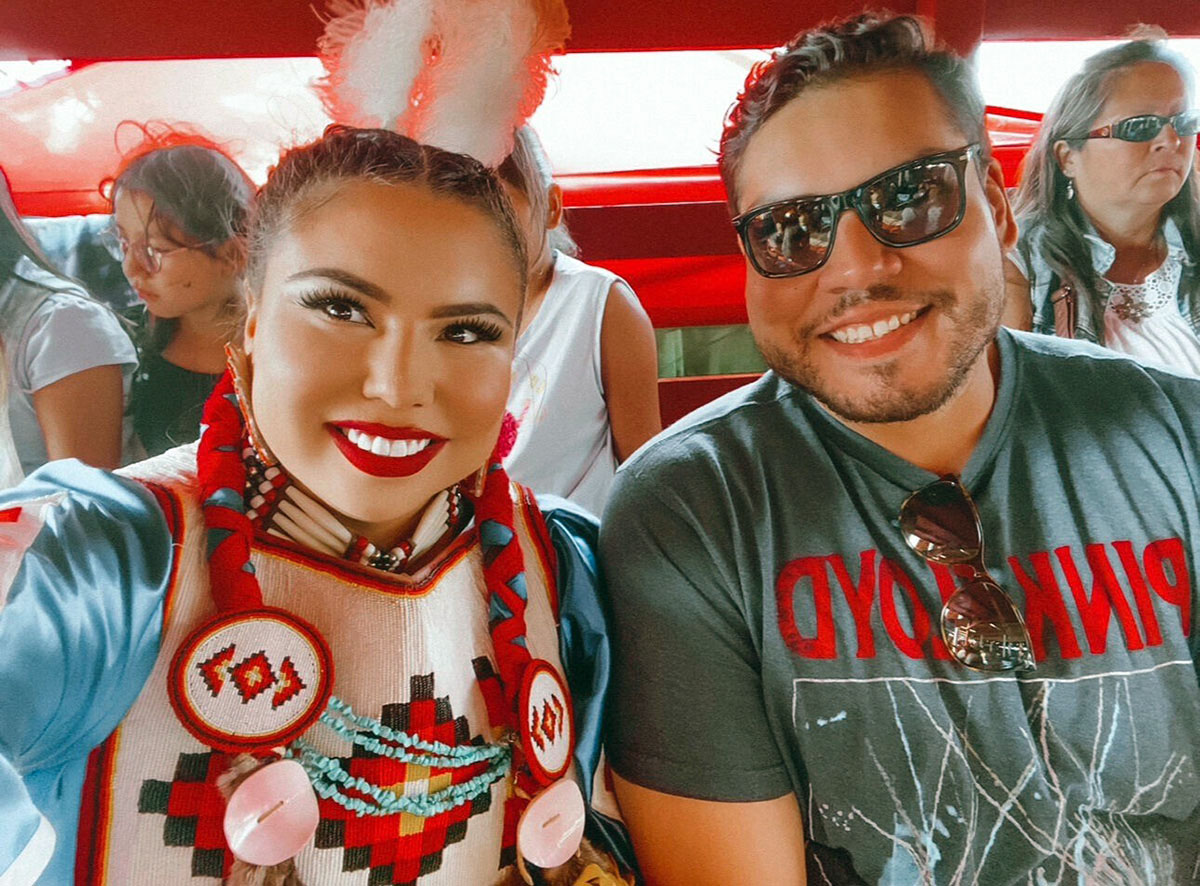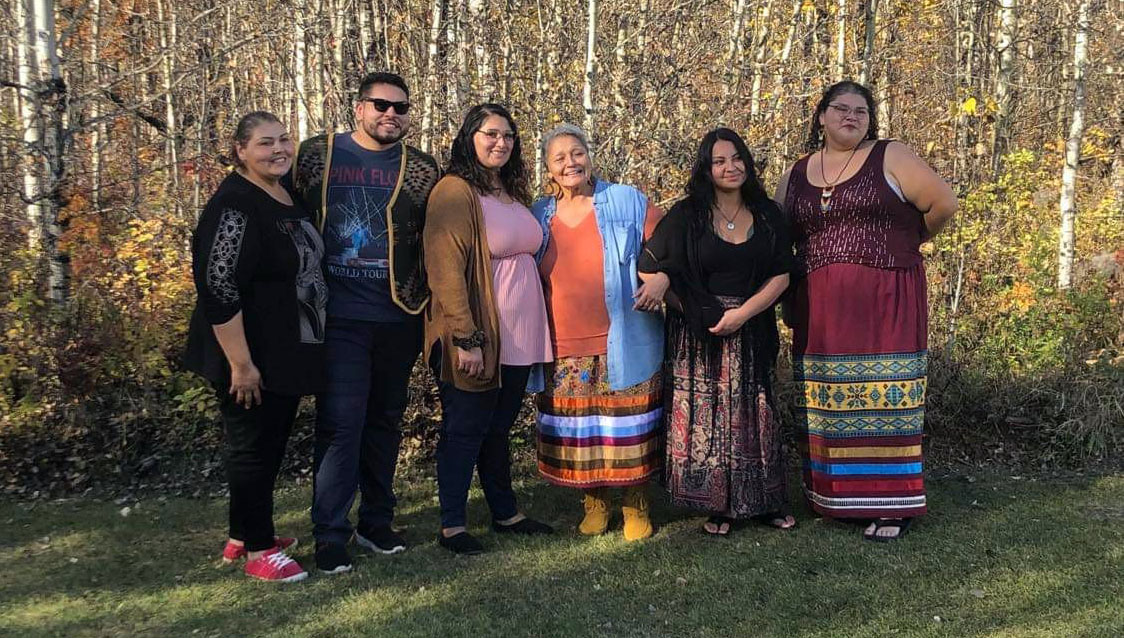National Indigenous Peoples Day: This is me, Tyler
Last updated onNational Indigenous Peoples Day, observed annually on June 21, celebrates and honours the achievements, rich cultures and unique heritage of First Nations, Inuit and Métis peoples in Canada.
This year, we spoke to Tyler Mitchell, Indigenous Relations Team Lead for Alberta North, who shared about the family values he lives by and his optimism for the future of Indigenous communities.
Meet Tyler
My name is Tyler, and I joined TC Energy a few months ago as the Indigenous Relations Team Lead for Alberta North, based out of Enoch Cree Nation, which is just outside of Edmonton.
I'm a passionate hockey fan (Go Oilers!) and enjoy snowboarding and playing basketball. My fiancée Amber and I have two dachshunds we adore like our own children. We love exploring the mountains around Banff together.

Tyler and his fiancée, Amber.
I’m also proud of my Cree and Saulteaux heritage. But as a child, I struggled with my Indigenous identity. My late father was a strong Métis leader whose priority was to build a better life for my four older sisters and me. When I was young, my family moved from our reserve in Cowessess First Nation in Treaty 4 Territory to Fort McMurray, AB, where I didn’t have much opportunity to practice my culture or engage with my community. During this period, I also faced the challenges and hardships of racism. But through it all, it was my family – and eventually my community – who provided the support that shaped who I am today.
Family influence
In my teens, my parents began to share about their experiences with residential school1 and forced assimilation, opening my eyes to the resilience of Indigenous people. I began attending events in my home community and learning life lessons from aunts, uncles and Elders. Together, they taught me the art of giving back, the beauty of service and the joy of taking pride in who I am. I fondly remember hunting and fishing trips with my dad, which not only brought us closer but also connected me to my roots. My father used every part of the animal and lay down a tobacco plant to honour and give back to the Earth. My mother taught my sisters and me to be mindful of our consumption and treat the environment with kindness. Growing up with four older sisters was also the best thing that could have happened to me – from them, I learned how to communicate well and build strong relationships!
In fact, my sisters can take a lot of credit in how I ended up where I am now – at the forefront of building relationships with Indigenous groups and fostering strong partnerships. My motivation to join the oil and gas industry largely stemmed from watching my sister, Lana Hill, work in a similar Indigenous Relations role at her company. She believes that meaningful change is more achievable from within organizations rather than from the sidelines. I now aspire to be the voice for our communities on the inside, influencing operations and projects, and am proud to work at a company that prioritizes on-the-ground relationship building and developing strong Indigenous partnerships, including equity opportunities.

Tyler with his mother (middle) and four sisters.
Leaders for change
As an advocate for Indigenous rights and issues, as well as a dedicated member of my community, I’m very optimistic about the future of our people. We’re seeing growing numbers of Indigenous youth pursuing higher education, paving the way for a new generation of leaders driving positive change. The corporate landscape is also undergoing transformative shifts in how various industries engage with Indigenous communities. I encourage Indigenous people and allies at TC Energy to continue amplifying Indigenous voices inside and outside the organization and advocating for a brighter and more inclusive future together.
1Residential schools were government-sponsored, church-run schools that were established to assimilate Indigenous children into Canadian society.